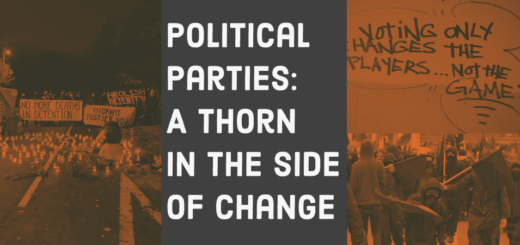The end of Corbynism and the re-emergence of the worker’s movement?
As with virtually everyone on ‘the left’, I am disappointed with the results of the general election. I did not vote but I could appreciate that the most recent iteration the Labour Party, arguably the most progressive for a generation, could have potentially offered some respite to those who have suffered the most, not only from the last 9 years of Tory austerity which has claimed the lives of over 100,000 people but from the neoliberal agenda set into motion by Margaret Thatcher and perpetuated by all subsequent governments since, including Labour.
But I cannot say that the result wasn’t completely unexpected. Recent times have been notoriously difficult for social democratic parties as they try to revive a bygone era of perceived prosperity which it saw post-WW2, looking back towards the Keynesian mixed economy, which was ultimately a specific economic configuration, linked to a specific historical period under capitalism, that we will never be able to return too nor should we want too[1]. Even if some did not expect Labour to fall at the first hurdle, I believe that we only have to look to the historical failures of the parliamentary left movements, from the German SPD of the Second International[2] to the Greek Syriza[3], to see that Corbynism was destined for failure. Many of the working class understand the reality of it, that the ruling class, regardless of their promises and favourable rhetoric, are still the ruling class. It doesn’t matter to them if they wear blue ties or red ties. They distrust politicians and rightly so.
Anarchists have long known that electoralism cannot be an emancipatory vehicle for the working-class and that the State and the party form are not the sites for a revolutionary socialist movement. The political party is fundamentally restricted by its own position in the system (one of numerous parties, each twisted between a number of competing factions, all with different intentions), by the mechanism that grants it authority (the ballot box, fundamentally separating itself from and alienating those it says it represents), and by the borders it enforces (the working class has no country and socialism will only be possible if it is international).
Since Labour’s loss in the general election, the finger-pointing from many on the left on who is to blame for the failure of Corbynism has been incessant and appears to ignore the elephant in the room, reformism. The mainstream left doesn’t want to talk about the limitations of its own movement and inherently counter-revolutionary features of electoralism and modern democracy for that means it needs to confront the prospect that they may have never stood a chance.
Corbynism, like all left electoral projects, wasn’t equipped to deal with the contradictions inherent within party politics and representative democracy, with the bourgeois media and with the imperatives and manifestations of capital and the power that it, and it’s facilitators, hold over all of us. Even if Labour had managed to obtain power, I suspect we would have seen it struggle to enact the vast majority of its policies it promised, compromising with capitalists, and retaining its position as the ‘left-wing of capital’. We must not underestimate or ignore the mechanisms of government finance that rely on the neocolonialist globalisation of capital and financialisation, which burdens the working class elsewhere, predominantly in the global South. The State’s role is as an instrument for the control and mediation of the antagonisms between capital and labour and consequently, has no capacity to challenge capitalism or to bring about its abolition. This is consistent with former Labour governments (including the ‘socialist’ poster boy Clement Atlee’s 1945 government[4]) and something we see no more vividly than with the recent failures and subsequent collapse of European social democracy (Syriza, Podemos[5], Partito Democratico), which has not only laid bare the inadequacies of social democracy and the parliamentary route but has facilitated (along with the centrists) the resurgence of the far-right on the continent. Even in existing social democracies, we can see that capitalism has eroded any last pretense that it is for the working people, as they continue to attack workers rights[6]. We must contend with the fact that becoming the ‘left-wing of capital’ is the goal of electoralism and that with the destruction of the last strongholds of the worker’s movements since the 1970s, that social democracy is no longer needed by the ruling class in order to control labour. The ruling class have never had it so good.
For the last 4 years, the British left has been dominated by Corbynism. Committed socialists, anarchists and communists have provided boundless energy and countless hours of unpaid labour for the ruling class. This, I feel, is time and energy that could have been spent building a worker-led anti-capitalist movement that would be in a stronger position now to fight NHS privatisation, climate change, disability cuts, and food poverty and that would have had the ability to empower individuals and allow them to forge new bonds in their workplaces and communities. It could have been time spent educating people on the fundamentals of capitalism and on our relationship to work, not just regurgitating useless rhetoric about billionaires, pandering to liberals and/or attempting to develop a media career or the hippest aesthetic (Acid Corbynism!?). If the revolutionary socialist movement had had even a fraction of the people, infrastructure and technology that the left deployed in pushing and supporting Corbynism particularly in the periods of a general election, I believe the anarchist movement, as well as the wider workers movement, could have been revitalised.
It isn’t enough to continue with the Labour party. It isn’t enough for our goals to be simply stopping the Tories or stopping ‘Blue Labour’. That is the darkest future timeline and one that we should not embrace. The worker’s movements have been fighting on the back foot for too long, trying to simply regain what concessions have been taken away. We must go on the offensive. We must demand more than what the Labour party could ever have offered, and certainly much more than the Tories will ever give us.
Are we going to be condemned to repeat the same failures, to treading water for another century?
I don’t believe we have the time.
It is time for us to break free from the constraints of electoralism once and for all, we must no longer hand over our power to others, we must not be contented to work in the shadow opportunistic politicians and media personalities or to pursuing dead-end reforms that are taken away much easier than they are ever granted, to fighting for scraps under a corrupt and undemocratic system of governance.
We must work to build a revolutionary socialist project founded on the self-activity of the working-class itself, on increasing militancy in our workplaces and in our communities, towards the real empowerment of individuals and of our class, and a rejection of the alienation that is imposed on us by liberal democracy and capitalist social relations.
The working-class is currently at its weakest point. Our organisations, unions and connections to each other have been completely obliterated but we must rebuild and we will win.

“We are going to inherit the earth. There is not the slightest doubt about that. The bourgeoisie may blast and burn its own world before it finally leaves the stage of history. We are not afraid of ruins. We carry a new world, here in our hearts. That world is growing this minute.”– Buenaventura Durruti
- https://economicsofimperialism.blogspot.com/2015/10/origins-of-uk-welfare-state.html See also [4]
- The voting of war credits to send the working class to their death, the murder of Rosa Luxemburg and Karl Liebknecht and subsequent crushing of the German revolution, putting down of striking workers etc etc etc.
- https://www.independent.co.uk/voices/syriza-greece-election-tsipras-new-democracy-troika-austerity-varoufakis-a8993811.html
- https://libcom.org/history/how-labour-governed-1945-1951
- https://www.theguardian.com/commentisfree/2019/feb/19/podemos-spanish-politics
- https://www.counterpunch.org/2019/01/04/class-war-in-sweden/


